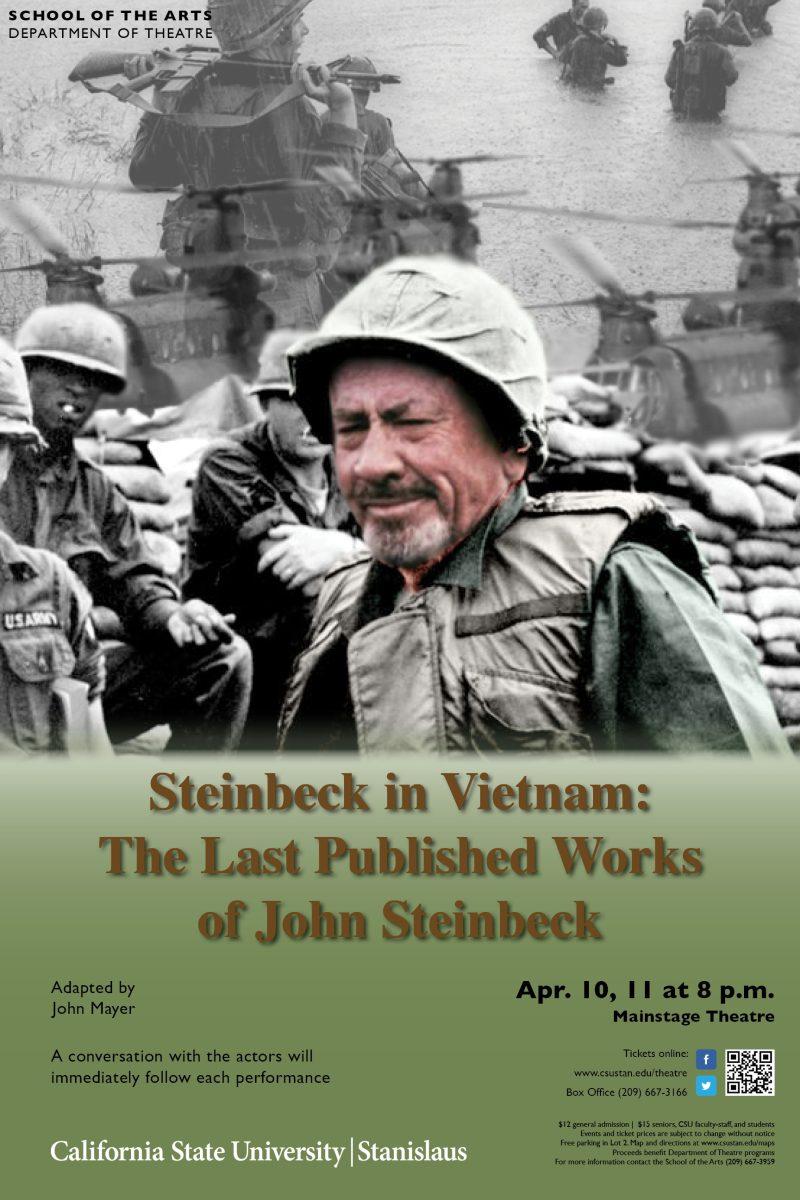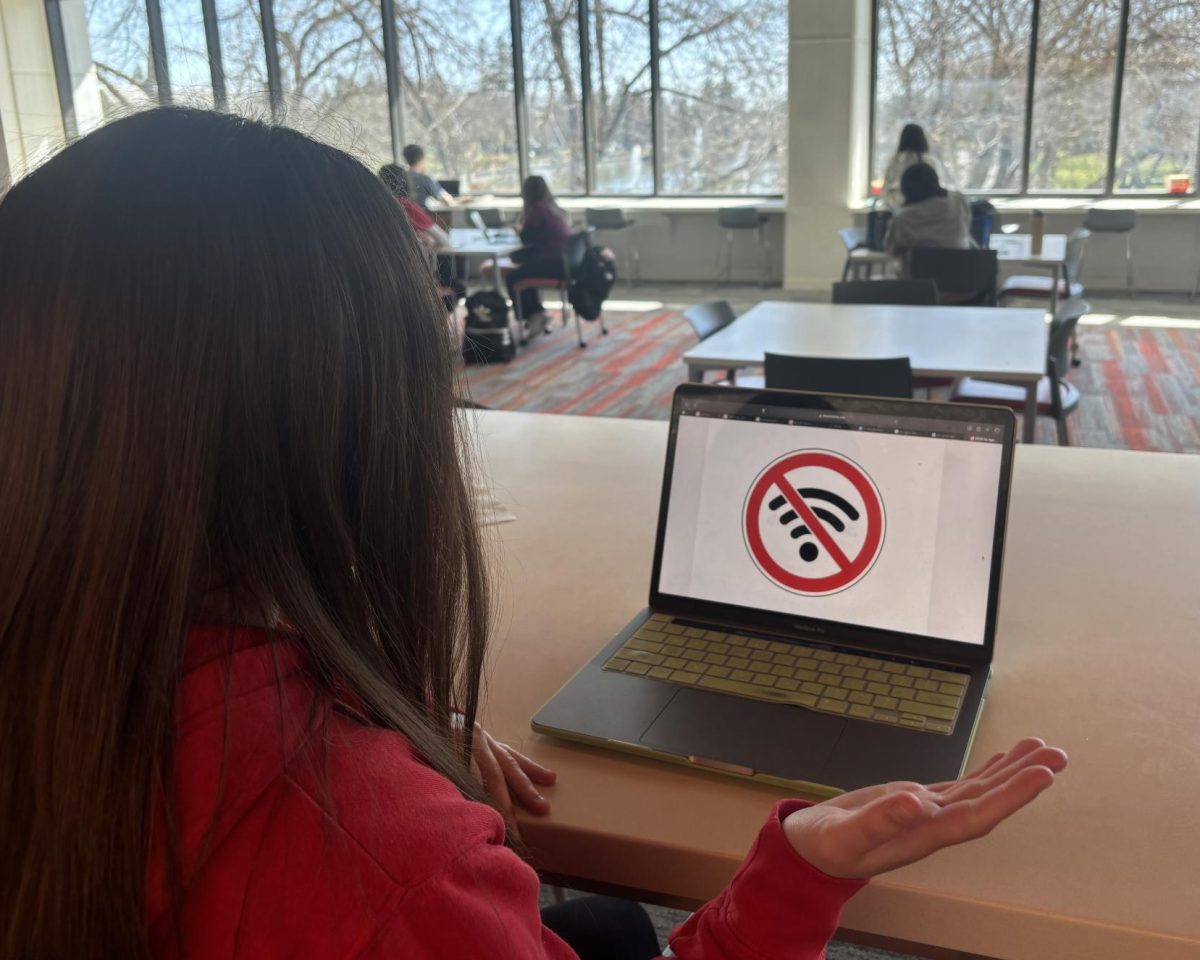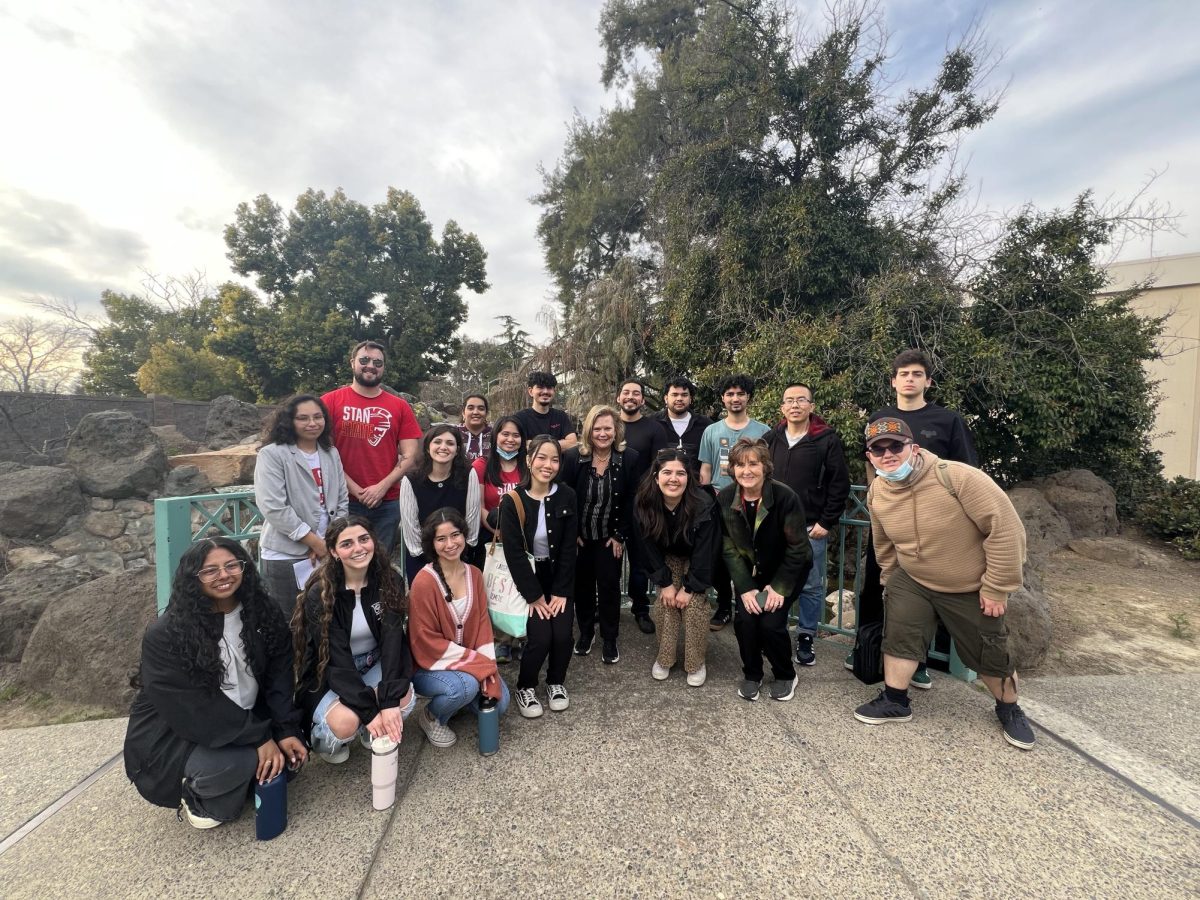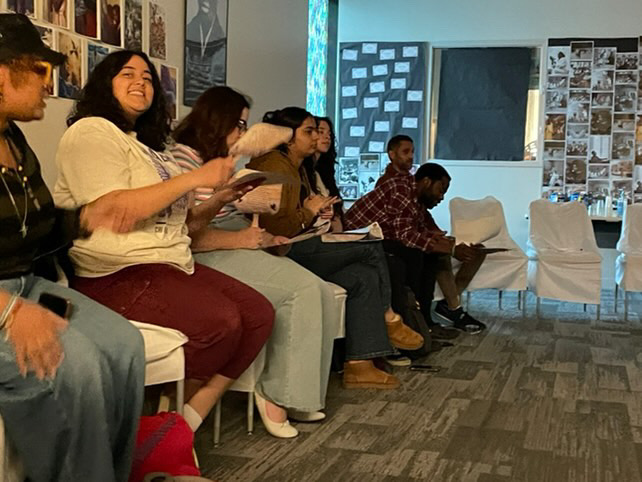In one of John Steinbeck’s reports of the Vietnam War, dated Jan. 12, 1967, he printed a translation of a poem sent to him by Nguyen Quang-Hien.
“If you come to Vietnam / to see where truth and reason are hiding,” the poem reads, “then I will tell you Vietnam has many truths / which cannot be understood.”
Deciphering those truths for himself seems to be the main driving force behind Steinbeck’s decision late in his life to work as a correspondent of the war for “Newsday” – to experience firsthand the conflict that has seen both of his sons enlisted. These reports have only recently been published as a collection titled, “Steinbeck in Vietnam: Dispatches from the War.” Tonight and Friday at 8 p.m., CSU Stanislaus’s Theatre Department will hold a readers’ production of the relatively unknown works.
“I was originally trying to put together a piece that was going to be kind of the best of John Steinbeck,” Dr. John Mayer, director of this production and chair of the Theatre Department, said. “And then when I came across this book, ‘Steinbeck in Vietnam,’ it just struck me ‘cause I’ve never read it. It was exciting to be reading some Steinbeck that I’ve never read.”
Mayer has been at CSU Stanislaus since 2000. He equates his role of Theatre Department chair with that of a producer, earning him the nickname Max Bialystock among his friends – after the character in “The Producers.” He oversees the annual Shakespeare show (this Spring’s being “Twelfth Night, or What You Will”), makes sure each project has a director and adequate staff, and brings in guest artists and productions.
Fans of Steinbeck’s depression-era novels might be a little shocked at first to hear the author deride “hippies” with their “dirty minds” and “drag-ass protests,” but the full arc of “Steinbeck in Vietnam” unveils a more complicated viewpoint.
“Through his experiences traveling there, you begin to see a certain thawing of his opinions about war,” Mayer said. “He doesn’t become an antiwar protester or something, but he certainly softens his attitudes and his opinions about the war. That’s part of what this reading captures.”
Mayer has a deep connection with John Steinbeck’s work. He played George Milton twice in theatre adaptations of “Of Mice and Men” and long ago fell in love with another of Steinbeck’s lesser-known books, “Travels with Charley,” about a road trip he embarked on with his dog across the United States.
“I just love that book and the philosophy espoused in that book and the story it tells and the wanderlust it expresses,” Mayer said.
Mayer also pointed out that the subject of his doctoral dissertation, the Steppenwolf Theatre Company, won a Tony award for the first-ever stage adaptation of Steinbeck’s “The Grapes of Wrath.” Steppenwolf is based out of Chicago, where Mayer grew up, and two of its co-founders, Gary Sinise and Jeff Perry, were high school classmates of his. Perry is one of the stars of the TV series “Scandal,” and college students today probably know Sinise best from his role in “Forrest Gump” as, funnily enough, Lt. Dan, Gump’s platoon leader in Vietnam.
In high school, Mayer, Perry and Sinise were all profoundly influenced by one of their teachers, a professional actress, Barbara Greener Patterson.
“I often say of her that this high school teacher changed the face of the American theatre,” Mayer said. “I believe that to be true. Without her, there’s no Steppenwolf Theatre. Steppenwolf spawned Gary Sinise, Jeff Perry, John Malkovich, Joan Allen, John Mahoney, Laurie Metcalf. They all came through Steppenwolf. Had it not been for her and her influence on us in high school, that theatre company never would’ve happened.”
The wanderlust that so attracted Mayer to “Travels with Charley” feels present in the years following his high school graduation.
“620 people in my graduating class – 95 percent went to college,” Mayer said. “I didn’t go. I eventually went to college. Went for a couple of years and then I dropped out and hit the pavement as a professional actor.”
Mayer got his first acting job playing the blind Don Baker in “Butterflies Are Free” for $10 a performance at Colorado’s Arvada Center. He started his own touring company, got pulled back into school, received an M.F.A. in acting at the University of Western Illinois and ended up in the restaurant business in Chicago.
“I ultimately decided I wanted to go back and get my doctorate,” Mayer said. “I got my Ph.D in Theatre History from the University of Missouri in 1993, immediately got a job right after I graduated at a small college in Texas, then interviewed here in 2000 and got a job. And that’s where I’ve been since.
“I like to jokingly say that I went to college for 12 years, but I learned everything I needed to learn in high school. The heart of who I am as a teacher, the heart of who I am as a leader, all that was set in stone by my high school experience. Of course, my seven to eight years in grad school colored me and textured that. But that core, that core, was established and has stayed the same.”
As the director and adaptor of “Steinbeck in Vietnam,” Mayer is pulling in guest talent for the show: Tony Carreiro, Dan Gately and Paul Romero. Staff members Laura Dickinson-Turner and Bo Henry are also participating in the readings.
Though no students are involved in the performance, they will get to interact with the actors in workshop environments. Carreiro, a successful TV and theatre actor in Los Angeles, is working with students as the fight choreographer for “Twelfth Night.”
Choosing to fill this production with such experienced professionals speaks to the gravitas in which Mayer holds Steinbeck.
“Even though he’s writing nonfiction, it’s still got his beautiful ability to use prose and comedy and pathos,” Mayer added. “Part of adapting for the stage is creating that picture and that milieu. The writing does most of it – his writing does most of it.”
Tickets for “Steinbeck in Vietnam: The Last Published Works of John Steinbeck” are $15 for general admission, $12 for students.
Conversations with the actors will follow both performances.
Categories:
Creating the picture: on John Mayer and bringing ‘Steinbeck in Vietnam’ to the Stage
By Nathan Duckworth
•
April 15, 2014
0
Donate to Signal
Your donation will support the student journalists of California State University, Stanislaus. Your contribution will allow us to purchase equipment and cover our annual website hosting costs.
More to Discover







